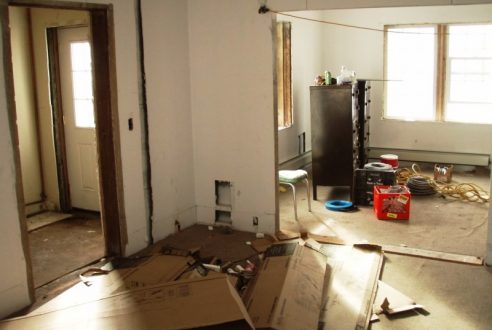In the bustling real estate market of Toronto, elevators play a critical role in the functionality and appeal of both residential and commercial buildings. Regular maintenance, timely repairs, and periodic modernization are not just regulatory requirements but also key factors in ensuring safety, efficiency, and tenant satisfaction. This guide provides actionable advice for property managers and building owners on maintaining and enhancing elevator operations.
Understanding Elevator Maintenance Needs
The Importance of Routine Maintenance
Elevator maintenance is essential for the smooth operation of any building. It involves regular checks and servicing to ensure that all components, such as the hoist, electrical systems, and safety brakes, function properly. Routine maintenance prevents unexpected breakdowns, which can cause inconvenience, safety hazards, and potentially high repair costs.
Professionals in elevator maintenance can spot early signs of wear and tear and address them promptly. In Toronto, where elevators are subject to frequent use due to high population density, the demand for constant maintenance is even greater. Engaging a certified elevator technician not only complies with Ontario’s safety regulations but also enhances the lifespan of the equipment.
Regular Inspections and Safety Compliance
Regular inspections are mandated by law in Toronto and must be conducted by licensed professionals. These inspections ensure compliance with safety standards and help identify potential issues before they become severe. Property owners should schedule inspections at least once a year, as this is critical in maintaining a safe operating environment and adhering to local building codes.
Key Repairs and Modernization Strategies
Timely Repairs to Avoid Disruptions
When elevators malfunction, quick and effective repairs are crucial. Common issues might include door malfunctions, unusual noises, or operational delays. Professional elevator technicians use diagnostic tools to identify the root cause and implement solutions that restore functionality quickly, minimizing downtime and inconvenience for building occupants.
Modernization: Enhancing Efficiency and Value
Elevator modernization involves upgrading the critical mechanical and aesthetic components of elevator systems. For older buildings in Toronto, modernization can mean replacing outdated machinery with energy-efficient technologies, installing new cabin interiors, or implementing advanced control systems like destination dispatch to reduce wait and travel times. Modernization not only extends the life of the elevators but also significantly boosts a building’s appeal and value in a competitive market.
Embracing Advanced Technologies
The Rise of Touch-less Elevator Technology
In response to health and safety concerns, especially highlighted by the COVID-19 pandemic, touch-less elevator technology has gained popularity. This technology allows users to operate elevators without physical contact, typically through smartphone apps or voice commands, adding a layer of convenience and safety. Integrating such technologies can significantly enhance the user experience and align with modern health standards, making a property more attractive to health-conscious tenants or buyers.
Partner with Professionals

It is imperative to engage with professional elevator service providers for maintenance, repairs, and modernization. Professionals bring not only the necessary technical expertise but also insights into the latest technologies and compliance with the stringent safety regulations of Toronto’s real estate market. Moreover, they can offer tailored solutions based on the specific needs of a property, whether it’s a commercial high-rise or a boutique residential building.
Wrapping Up Your Elevator Strategy
To sum up, effective elevator management in Toronto’s real estate sector involves a proactive approach to maintenance, timely repairs, and strategic modernization. By partnering with professional technicians and embracing innovative technologies, property owners can ensure their elevators offer safe, efficient, and pleasant experiences for users. This not only complies with regulatory requirements but also significantly contributes to the building’s operational success and tenant satisfaction. Elevators are more than just transportation within buildings; they are vital components that reflect the overall health and appeal of the property.



